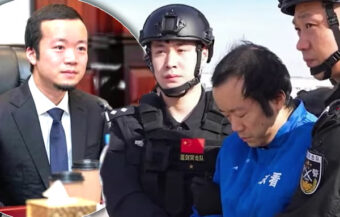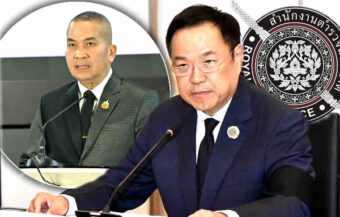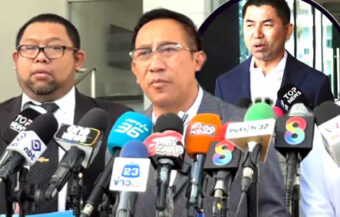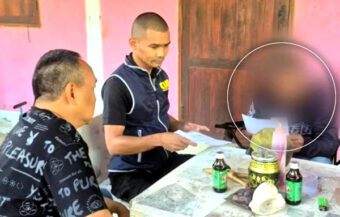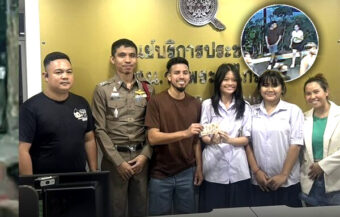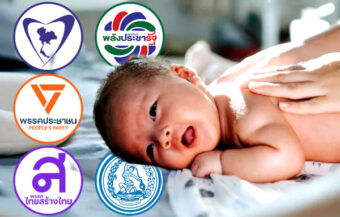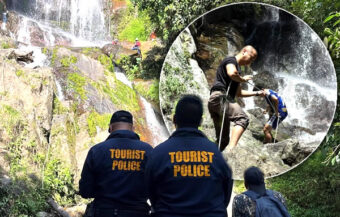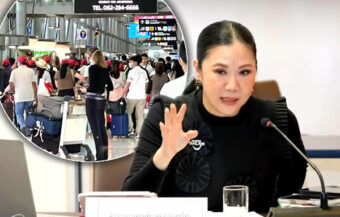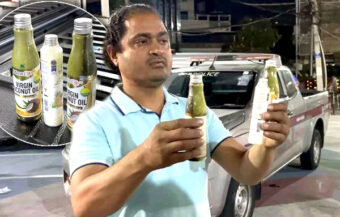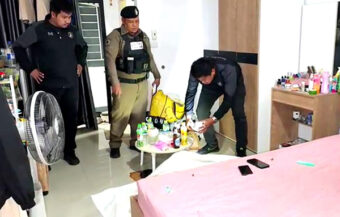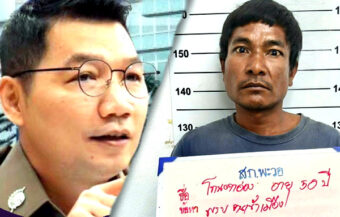Former PM Thaksin boosts morale at Korat ceremony as US trade deal nears. Final tariff rate likely close to Vietnam’s 20%, says Finance Minister Pichai. Deal excludes military pact but tackles Chinese transshipments, exports and political uncertainty.
Former Prime Minister Thaksin Shinawatra fired up the press in Nakhon Ratchasima on Saturday, confirming that the final US trade deal is imminent. He warned the tariff rate could swing either way—but don’t expect it to beat Vietnam’s 20%. Finance Minister Pichai Chunhavajira backed him up, signalling Thailand is bracing for a tougher outcome than hoped. Recent official comments make it clear: the final tariff will likely top Vietnam’s rate and exceed the 18% originally planned. On top of that, Thailand faces extra charges on Chinese goods transshipping through the country—another headache in the mix or perhaps a blessing.
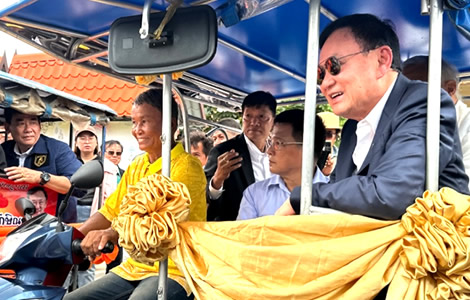
Former Prime Minister Thaksin Shinawatra returned to the spotlight on Sunday, July 19, in Nakhon Ratchasima. Indeed, he was attending a major religious ceremony at Wat Ban Rai, a temple deeply revered across Thailand. Not only that, the visit was symbolic, spiritual and unmistakably political.
Thaksin appeared animated and upbeat throughout his visit. He smiled warmly, greeted locals with folded hands and posed for photographs. Many supporters had arrived early, clutching banners and flowers. Although his actual birthday falls on July 26, they cheered loudly and sang an early happy birthday to him.
Thaksin’s grand arrival stirs excitement among supporters at Wat Ban Rai religious ceremony
His arrival caused a stir. The former leader pulled up in a glossy Rolls-Royce with Bangkok plates.
As the car approached, a wave of red-shirted supporters surged forward. Meanwhile, flags bearing his name and face fluttered in the breeze. As always, his charisma commanded attention.
Thaksin then made a surprising switch. For the final approach to the temple, he climbed into a custom-made sidecar motorcycle. Painted bright red and emblazoned with his portrait, it was more than transport—it was a statement.
Later, when reporters teased him about the ride, he grinned. “It might be my first time in one like this,” he said with a chuckle.
Upon entering the temple grounds, he immediately turned reverent. He bowed respectfully before a wax figure of Luang Por Koon, the temple’s late abbot and one of Thailand’s most beloved monks. “He looks alive,” Thaksin remarked. “His presence still guides us.”
The main purpose of the visit was a merit-making ceremony. Thaksin took part in pouring molten gold into a mould destined for the base of a giant statue of Luang Por Koon. Once completed, it will be the world’s largest statue of the monk.
Ceremony draws political leaders and thousands to honor beloved monk with gold pouring ritual
Moreover, the ceremony drew high-profile attendees. Deputy Prime Minister Prasert Chantarawongthong, Minister of Culture Sudawan Wangsupakitchkosol, and Finance Minister Pichai Chunhavajira all attended. In addition, monks, village heads, local officials and thousands of citizens were also present.
Before the ceremony, Thaksin met the late monk’s disabled grandson. The man gifted him an old photo from 2005, showing Thaksin and Luang Por Koon together. Thaksin received the gift with visible emotion. Afterward, he thanked the man and offered encouraging words.
Reflecting on his connection to the monk, Thaksin shared memories. He recalled once staying overnight at the temple. The two had spoken well into the night. “He spoke only of Dhamma,” Thaksin said. “He had Dhamma in his heart. That night changed my life.”
In addition, he used the moment to comment on recent controversies involving rogue monks. “Every society has wrongdoers,” he said. “But most monks follow the Buddha’s path.”
“Monks are not the religion itself,” he continued. “They are vessels. Dhamma lives in honest practice.”
Thaksin praises Luang Por Koon’s teachings and addresses controversies around rogue monks
He praised Luang Por Koon’s simple teachings. In particular, “He didn’t chase superstition,” said Thaksin. “He focused on what really matters.”
Furthermore, he called on authorities to protect Buddhism while also monitoring those who exploit it. “Since my return, I’ve vowed to support Buddhism,” he said. “I want Dhamma to live in every Thai heart.”
Banners fluttered around the temple. Notably, one read, “Red Korat Loves Thaksin.” Volunteers helped usher guests with sidecars painted in party colours. Thus, the festive, respectful mood captured the duality of Thaksin’s message: unity through faith and strength through leadership.
However, the event was not purely spiritual. In addition, Thaksin also addressed major national issues, particularly trade talks with the United States. These talks, ongoing for months, are now in their final stages.
“The proposals have seen major improvements,” he explained. “Almost no objections remain on either side.”
Thaksin stresses progress in trade talks with US amid ongoing economic negotiations and optimism
Finance Minister Pichai, who has recently been engaged in intense online negotiations with Washington, confirmed this optimism. “Specifically, we used the full 30 minutes efficiently,” he said. “The atmosphere was warm and productive.”
Importantly, Thaksin stressed that the deal includes no military elements. “There is no naval base,” he said firmly. “No security pact, either. This is about economics.”
Reporters asked if Thailand might receive better tariff terms than Vietnam. In response, Thaksin smiled but offered caution. “Probably close to ASEAN averages,” he said. “Possibly similar to Vietnam, maybe a bit higher or lower.”
The deal is expected to cover a wide array of sectors. Thailand is pushing for improved access to American markets for agricultural products, electronics, and auto parts. Meanwhile, the U.S. wants more access to Thai sectors like finance, digital services, and pharmaceuticals.
“Still, we aren’t giving up our market,” said Pichai. “Instead, we want growth, not just temporary corrections.”
Trade deal talks include tariff terms, market access, and exclude military bases or security pacts
Thailand’s proposal includes steps for tax reform, streamlined customs processes and support for small exporters. In addition, the plan seeks to strengthen enforcement against transshipped goods.
“We must export more to survive,” Pichai emphasized. “We can’t rely solely on domestic consumption.”
One challenge is managing goods shipped from China through Thailand to the U.S. without proper origin labels. Washington considers these transshipments unfair trade practices.
“This is under discussion,” said Pichai. “We may adopt a model like Vietnam’s. Different items may have different tariffs.”
Some goods might face high duties, especially if suspected of Chinese origin. Others, especially verified Thai goods, could benefit from very low tariffs.
“We will review each product type carefully,” he said. “Our aim is fairness and clarity.”
As of now, the final tariff rate is unknown. However, Thai officials remain optimistic. “It should be competitive within ASEAN,” Pichai added.
Thailand proposes tax reform and tariff enforcement to address transshipments and protect exporters
For instance, if some newly authorised U.S. imports cost more, he believes Thai consumers will make rational choices. “If the price is too high, people won’t buy it,” he said.
Meanwhile, Thaksin confirmed his upcoming campaign trip to Sisaket province. He plans to support the Pheu Thai candidate in an important by-election.
“I will definitely go there,” he said. “Our base is strong. We have deep roots in the province.”
Later, reporters asked if he was worried about rival party leaders visiting the area first. Thaksin shrugged. “I’m not concerned,” he said. “Our candidate has strong local ties.”
As for officials who welcomed opposition leaders, he downplayed the matter. “That’s just protocol,” he said. “It doesn’t mean political support.”
He then differentiated between elections. “This by-election is about real representation. Our focus is long-term service.”
Nonetheless, political uncertainty looms. Thaksin’s daughter, Prime Minister Paetongtarn Shinawatra, is awaiting a ruling from the Constitutional Court. Currently, the court is reviewing whether her holding the premiership violates the Constitution.
Political uncertainty grows as by-election approaches and constitutional court reviews prime minister’s status
Many analysts believe her removal is likely. If so, Thaksin may advise her to step down before the verdict. This would preserve party stability and protect long-term strategy.
Should she resign, Deputy Prime Minister Phumtham Wechayachai would serve as caretaker leader. Consequently, he could then call a general election. Therefore, a reset of the political landscape and a release of at least some tensions would follow.
“We’re prepared for all outcomes,” Thaksin said. “Our goal is to protect democracy and the people’s will.”
Despite being officially retired from politics, Thaksin remains the de facto leader of the Pheu Thai Party. Moreover, his blend of spiritual symbolism, economic insight and political influence continues to resonate.
Senate Committee Chair tells government to send Trump’s men packing and accept the 36% tariff rate
Trump tariff crisis has exposed the colonisation of the Thai economy by Chinese zero-dollar factories
Thai SME sector raises the alarm as the government struggles to deal with a fast-moving US tariff crisis
Thaksin joins Thai tariff crisis talks at Phitsanulok Mansion. Confirms real fears of Chinese retaliation
His weekend visit to Korat served many purposes. It reinforced his moral authority, showcased party unity and hinted at what lies ahead. Indeed, as Thailand balances faith, economic policy, and constitutional uncertainty, Thaksin’s next move could shape events in every sphere.
The gold he poured into the statue’s base may soon harden. However, the ripple effect of his presence is only beginning to spread. For now, he walks a careful path—between tradition and transformation, past and future, religion and reform.
Join the Thai News forum, follow Thai Examiner on Facebook here
Receive all our stories as they come out on Telegram here
Follow Thai Examiner here
Further reading:
Senate Committee Chair tells government to send Trump’s men packing and accept the 36% tariff rate





